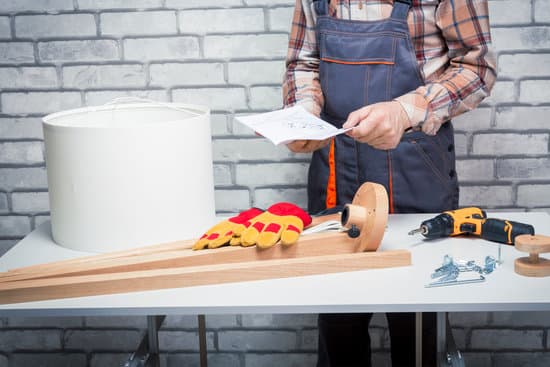Are you wondering, “Can I claim home improvement on my taxes?” Understanding tax deductions for home improvement can provide valuable benefits for homeowners. Whether you’re making small upgrades or major renovations, it’s important to know what qualifies and how to maximize your tax benefits.
When it comes to claiming home improvement on your taxes, there are specific criteria that must be met in order to qualify. This article will help you understand the guidelines for what qualifies as a home improvement for tax purposes, as well as which renovations can be claimed and which expenses cannot.
By keeping thorough records and documentation of your home improvement projects, you can ensure that you are eligible for any potential tax claims. Additionally, knowing the limits and restrictions on home improvement tax claims is crucial in order to maximize your benefits without running into any issues with the IRS.
What Qualifies as a Home Improvement for Tax Purposes?
For tax purposes, a home improvement is any renovation or modification made to a property that adds value, prolongs its useful life, or adapts it to new uses. These improvements are considered capital expenses and can potentially be claimed on your taxes. It’s important to understand what qualifies as a home improvement in order to ensure that you are eligible for tax deductions.
Examples of Qualifying Home Improvements
Some common examples of home improvements that may qualify for tax deductions include the installation of energy-efficient windows, doors, and roofing; the addition of a new room or garage; upgrades to the heating, ventilation, and air conditioning (HVAC) system; and the installation of solar panels or a geothermal heat pump. These types of improvements not only enhance the functionality and comfort of your home but also contribute to energy efficiency and environmental sustainability.
Non-Qualifying Repairs and Maintenance
It’s important to note that routine repairs and maintenance do not qualify as home improvements for tax purposes. This includes tasks such as painting walls, fixing leaks, replacing broken fixtures, and other minor upkeep. While these types of expenses are necessary for the upkeep of your property, they typically cannot be claimed on your taxes as home improvement deductions.
By understanding what qualifies as a home improvement for tax purposes, homeowners can make informed decisions about which projects may be eligible for deductions when filing their taxes. As always, it is recommended to consult with a tax professional to ensure compliance with current laws and regulations regarding home improvement deductions.
Renovations That Can Be Claimed on Taxes
When it comes to claiming home improvements on your taxes, there are certain renovations that may qualify for a tax deduction. These typically include upgrades that contribute to the overall value and efficiency of your home. Some common examples of home renovations that can be claimed on taxes include energy-efficient improvements such as installing solar panels or energy-efficient windows, as well as crucial repairs like roof replacement or HVAC system upgrades.
Other renovations that may qualify for tax deductions are those that enhance the accessibility of your home for individuals with disabilities. This can include adding wheelchair ramps, modifying bathrooms for accessibility, or installing support bars and handrails. It’s important to note that these renovations must meet specific criteria set by the IRS in order to qualify for tax benefits.
Additionally, expenses related to home office renovations may also be eligible for tax deductions if they are used exclusively for business purposes. This can include expenses related to painting, flooring, built-in shelves, or any other renovation work done within the designated home office space.
| Home Renovation | Tax Deductible? |
|---|---|
| Installing Solar Panels | Yes |
| Roof Replacement | Yes |
| Adding Wheelchair Ramps | Yes (for disabled individuals) |
| Home Office Renovations | Yes (if used exclusively for business purposes) |
As with any tax-related matter, it is always advisable to consult with a tax professional or accountant to ensure that you are accurately claiming any home improvement expenses on your taxes. By doing so, you can avoid potential errors or omissions and maximize your tax benefits while remaining in compliance with IRS regulations.
Expenses That Cannot Be Claimed on Taxes
When it comes to claiming home improvement on your taxes, there are certain expenses that unfortunately cannot be included in your tax deduction. It’s important to be aware of these ineligible expenses to avoid any complications or penalties with the IRS. Here are some common expenses that cannot be claimed on taxes:
1. Personal Expenses: Any home improvements that are considered personal in nature, such as landscaping for purely aesthetic reasons or adding a swimming pool, cannot be claimed on taxes.
2. Routine Repairs and Maintenance: Expenses for regular upkeep and maintenance of your home, such as fixing a leaky faucet or repainting a room, are not eligible for tax deductions.
3. Home Office Renovations: While home office renovations can improve the functionality of your workspace, they typically do not qualify for tax deductions unless the space is used exclusively and regularly for business purposes.
It’s crucial to understand which expenses can and cannot be claimed on your taxes when it comes to home improvement. By staying informed about these eligibility criteria, you can ensure that you are maximizing your potential tax benefits while avoiding any issues with the IRS.
Keeping Records and Documentation for Home Improvement Tax Claims
Keeping thorough records and documentation is crucial when it comes to claiming home improvement on your taxes. Without proper documentation, you may not be able to substantiate your claims in case of an audit by the IRS. Here are some important aspects to consider when it comes to keeping records for home improvement tax claims.
Receipts and Invoices
One of the most important pieces of documentation for home improvement tax claims is receipts and invoices. Keep all receipts and invoices related to the materials purchased and the labor costs involved in the home improvement project. This includes everything from the cost of paint and flooring materials to the fees paid to contractors or laborers.
Before-and-After Photos
In addition to documenting expenses, it’s also beneficial to have before-and-after photos of the home improvement project. These photos provide visual evidence of the work that was done and can help support your claim if necessary. Make sure these photos clearly show the changes made as a result of the home improvement project.
Contracts and Permits
If you hired a contractor for your home improvement project, keep copies of any contracts or agreements signed, as well as any permits obtained for the work. These documents can serve as proof that the improvements were legitimate and compliant with local building codes and regulations.
By keeping detailed records and documentation for your home improvement projects, you can ensure that you have everything you need to support your tax claims in case they are ever questioned or audited by tax authorities. Can I claim home improvement on my taxes? Yes, but only if you have proper documentation to back up your claims.
Limits and Restrictions on Home Improvement Tax Claims
When it comes to claiming home improvement on your taxes, there are certain limits and restrictions that you need to be aware of. Understanding these limitations can help you maximize your tax benefits while ensuring that you are in compliance with the regulations set by the IRS.
There are certain expenses related to home improvement that can be claimed on taxes, but it’s important to note that there are limits to what can be claimed. Here are some of the restrictions and limitations to keep in mind:
- Standard deduction: If you choose to take the standard deduction on your tax return, you may not be able to claim certain home improvement expenses.
- Personal use: Expenses related to home improvements that are purely for personal use and not for business purposes cannot be claimed on taxes.
- Capital improvements: While regular maintenance and repairs may not be eligible for tax claims, capital improvements that add value or prolong the life of your property can typically be claimed.
In addition, there are also limits on the amount of expenses that can i claim home improvement on my taxes The IRS sets specific guidelines and thresholds for certain types of home improvement expenses, so it’s important to familiarize yourself with these regulations in order to maximize your tax benefits.
Ultimately, understanding the limits and restrictions on home improvement tax claims is essential for homeowners who want to take advantage of potential tax deductions. By keeping track of eligible expenses and staying within the guidelines set by the IRS, you can ensure that you are making the most out of your home improvement investments while staying compliant with tax regulations.
How to Claim Home Improvement on Taxes
To claim home improvement on your taxes, you will need to file a Form 1040 and itemize your deductions using Schedule A. You must also ensure that the expenses you are claiming meet the criteria set by the IRS for home improvement tax deductions. This means keeping accurate records and documentation of all expenses related to the home improvement project.
When claiming home improvement on your taxes, it is important to remember that only certain expenses qualify for deductions. These include costs directly related to the improvement of your primary residence, such as materials, contractor fees, and permit fees. However, it’s essential to note that general maintenance or repairs cannot be claimed as a tax deduction.
In addition to keeping detailed records, it is also crucial to understand the limits and restrictions on home improvement tax claims. The IRS has specific guidelines regarding what can and cannot be claimed, so it is advisable to consult with a tax professional if you have any doubts about whether a particular expense qualifies for a deduction.
By following these guidelines and understanding how to claim home improvement on your taxes, you can maximize your tax benefits and potentially save money on your annual tax bill.
Benefits of Claiming Home Improvement on Taxes
When it comes to filing your taxes, many homeowners wonder, “Can I claim home improvement on my taxes?” The good news is that, in certain situations, you can indeed claim home improvement expenses as deductions on your tax return. This can lead to significant savings and can help offset the costs of making improvements to your property.
One benefit of claiming home improvement on taxes is the potential for reducing your tax liability. By deducting eligible home improvement expenses from your taxable income, you may be able to lower the amount of income that is subject to tax. This means that you could end up owing less in taxes or even receive a larger refund.
Another advantage of claiming home improvement on taxes is the opportunity to increase the value of your property while benefiting from tax savings. Many home improvements not only enhance the aesthetic appeal and functionality of your home but also add to its overall value. By utilizing available tax deductions for these improvements, you can potentially recoup some of the costs associated with enhancing your property.
In addition to cost savings and increased property value, claiming home improvement on taxes allows you to reinvest in your home without shouldering the full financial burden. This can provide a valuable incentive for homeowners to make necessary repairs and upgrades, knowing that they may be able to recoup a portion of their expenses through tax benefits. However, it’s important to note that there are specific criteria and limitations regarding which types of home improvements qualify for tax deductions.
Conclusion
In conclusion, understanding the tax deductions for home improvement can provide homeowners with the opportunity to maximize their tax benefits. By knowing what qualifies as a home improvement for tax purposes and which renovations can be claimed on taxes, individuals can make informed decisions about their home improvement projects. Keeping thorough records and documentation of all expenses related to home improvements is crucial in order to successfully claim them on taxes.
While there are limits and restrictions on home improvement tax claims, the benefits of claiming these expenses on taxes can be substantial. Homeowners may be eligible for significant deductions that can ultimately save them money in the long run. By taking advantage of these tax benefits, individuals can potentially reduce their overall tax liability and keep more of their hard-earned money.
Ultimately, maximizing your tax benefits through home improvement claims requires careful planning and organization. Consulting with a tax professional or financial advisor can provide valuable guidance in navigating the complexities of claiming home improvement expenses on taxes. With the right knowledge and preparation, homeowners <can i claim home improvement on my taxes> effectively and take advantage of the potential savings available to them.
Frequently Asked Questions
Can I Deduct Home Improvements on My Tax Return?
Generally, you cannot deduct home improvements on your tax return. These are considered personal expenses and do not qualify as deductible expenses. However, certain home improvements that increase your home’s energy efficiency may be eligible for tax credits.
Is Homeowners Insurance Tax Deductible?
Homeowners insurance is not typically tax deductible for personal, non-business properties. It is considered a personal expense rather than a business expense and therefore does not qualify for a tax deduction. However, there are some exceptions for certain home office setups or rental properties.
Are Home Improvement Loans Tax Deductible?
Home improvement loans are generally not tax deductible unless they are used for home improvements that qualify for a tax credit. The interest on these loans is considered a personal expense and does not meet the criteria for tax-deductible interest under most circumstances. Always consult a tax professional for personalized advice on this matter.

I’m thrilled to have you here as a part of the Remodeling Top community. This is where my journey as an architect and remodeling enthusiast intersects with your passion for transforming houses into dream homes.





